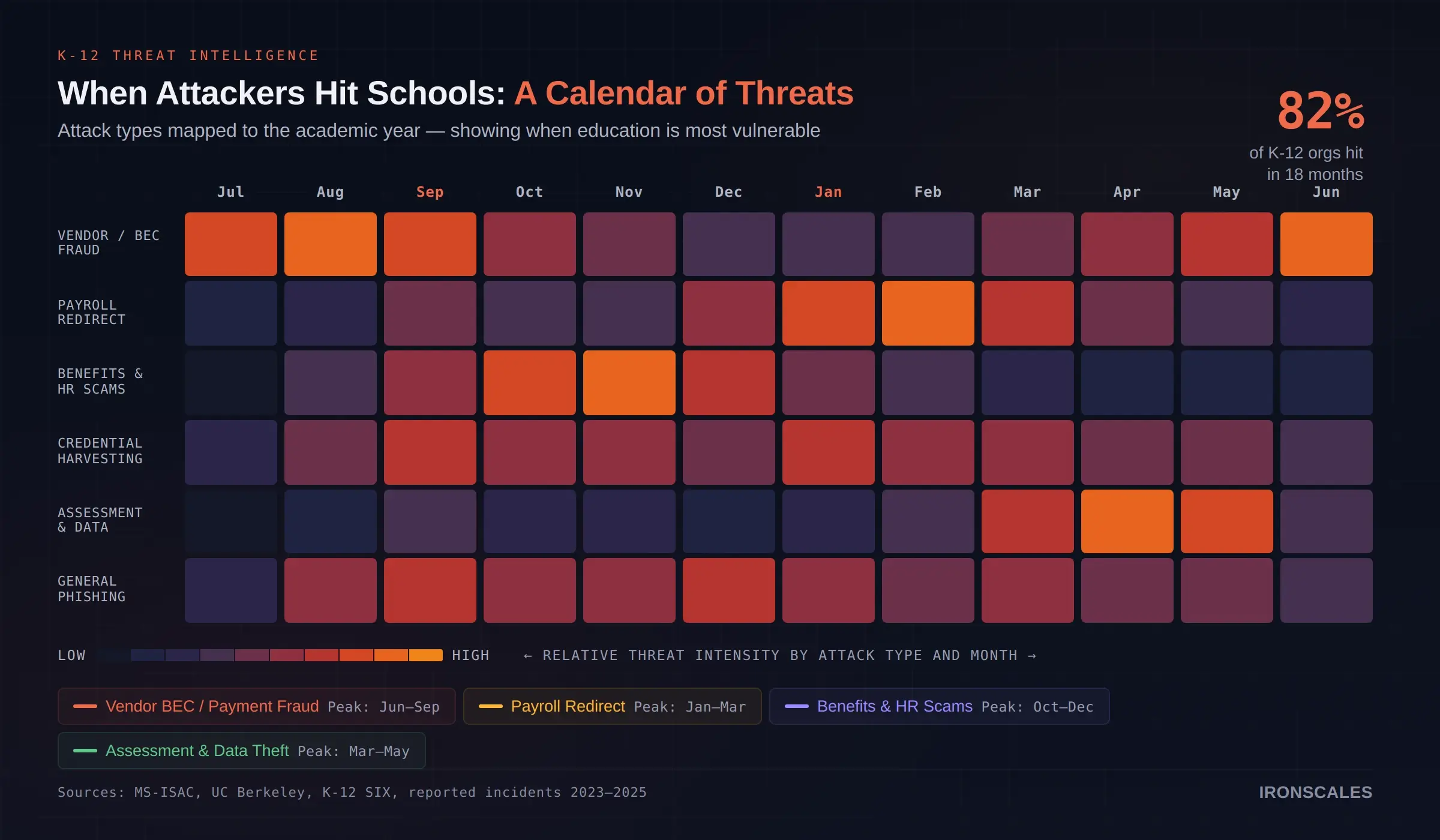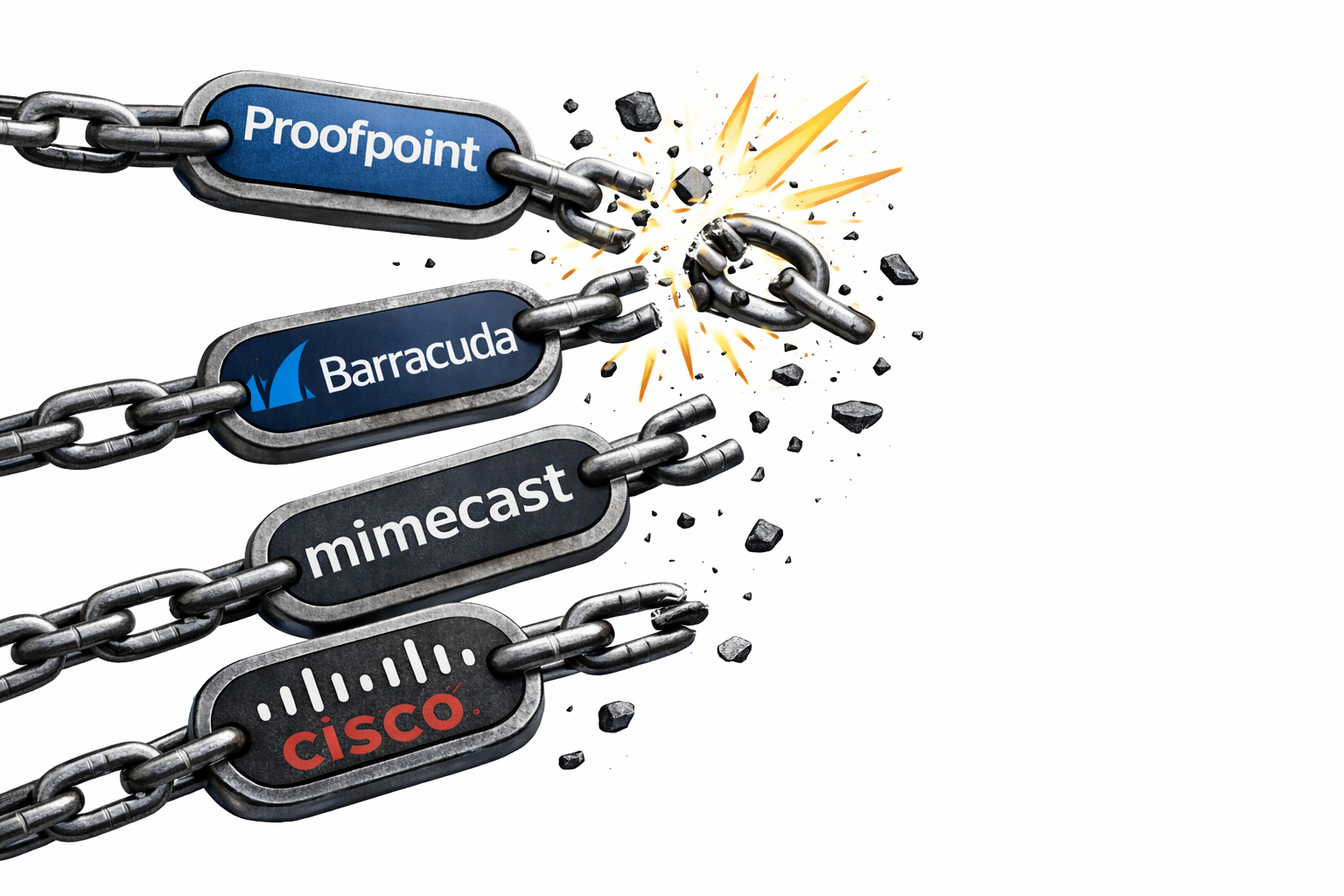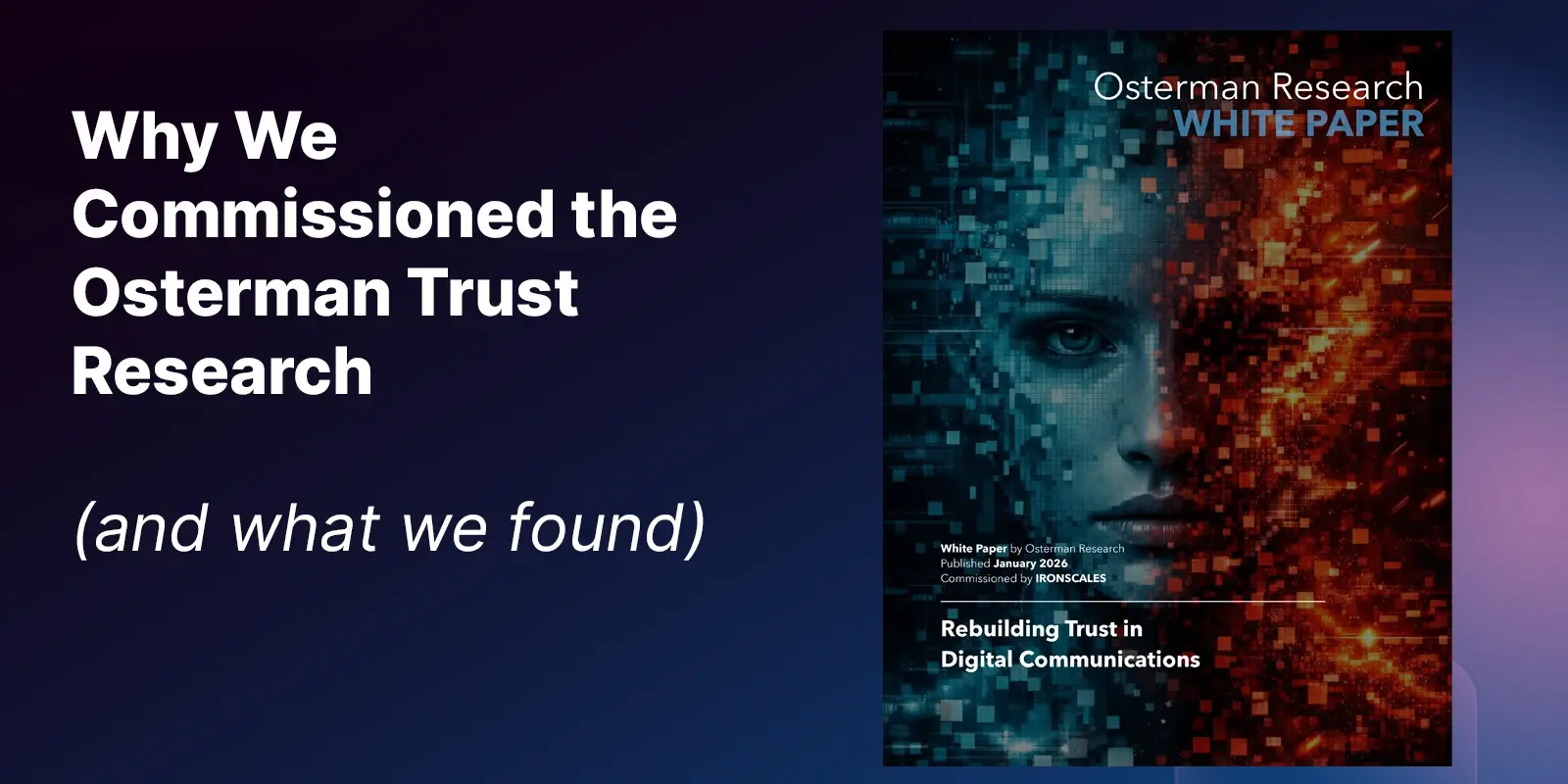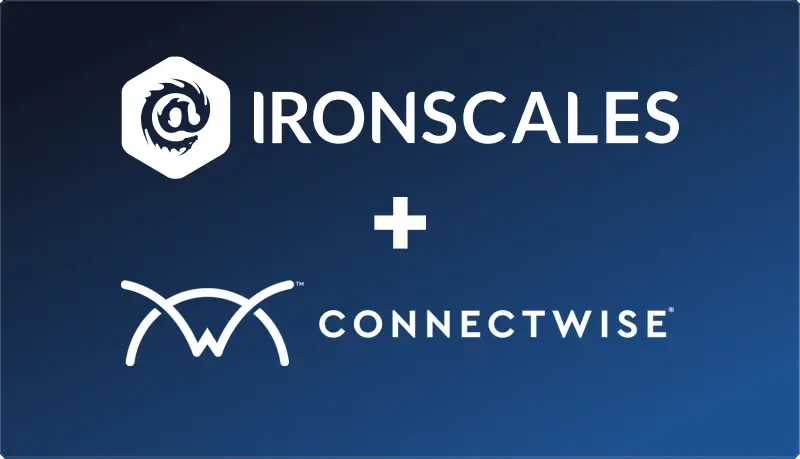Table of Contents
Today’s email authentication landscape is built on three critical standards—SPF (Sender Policy Framework), DKIM (DomainKeys Identified Mail), and DMARC (Domain-based Message Authentication, Reporting, and Conformance). Together, they form a defense system that validates email legitimacy and deters bad actors from eroding an organization’s reputation. For MSPs, mastering these standards isn’t just a technical exercise—it’s a business imperative for securing your clients’ domains, ensuring they stay compliant, and enhancing email deliverability.
In this blog, I’m going to walk you through some foundational knowledge of the email security standards I just mentioned and how they impact the modern MSP’s operations.
Let’s begin with the basics…
The Core Standards Explained
What is SPF, DKIM, and DMARC?
- SPF (Sender Policy Framework):
SPF verifies that an email’s sender is authorized to use the domain by cross-referencing DNS records. Emails failing this check may be flagged or rejected. - DKIM (DomainKeys Identified Mail):
DKIM ensures that emails haven’t been tampered with during transit by applying a cryptographic signature. - DMARC (Domain-based Message Authentication, Reporting, and Conformance):
DMARC builds on SPF and DKIM, enforcing policy decisions on how to handle unauthenticated emails. It provides visibility into unauthorized email activity through detailed reports.
Major providers like Google and Microsoft are increasing enforcement of these protocols to promote better mailbox hygiene for their users. Beyond these businesses, regulatory bodies such as CISA, GDPR, and NIST are also aligning their standards around DMARC, making compliance a critical priority for many industries – Especially verticals under heavy risk of phishing.
Is DMARC More Important?
DMARC is a crucial email security protocol, but it cannot exist without the other 2 components. It works by instructing email providers on how to handle messages that don’t pass SPF or DKIM authentication checks, helping to prevent fraudulent emails from reaching inboxes.
By integrating SPF and DKIM with policy enforcement and detailed reporting, DMARC gives organizations better visibility into email activity. This not only strengthens domain protection but also helps improve email deliverability and preserves brand reputation.
Why DMARC Matters for MSPs?
Let’s talk brass tacks… Email security standards like SPF, DKIM, and DMARC, while highly effective, are often difficult to configure, maintain, and monitor. MSPs face the daunting task of ensuring that every domain under their management is fully authenticated and compliant. Failure to implement proper email authentication can cause problems:
- Unfiltered Spoofing Attacks: Without SPF and DMARC, attackers can easily impersonate a trusted sender. End users might receive emails that appear to be from their bank, suppliers, or even their own executives, leading to phishing attacks or fraud.
- Brand Damage and Loss of Trust: Spoofed emails undermine the credibility of a business, causing clients, partners, and customers to doubt legitimate communications.
- Email Deliverability Issues: Many major email providers (like Google, Yahoo, and Microsoft) now enforce DMARC policies. Domains without DMARC are at risk of having their emails flagged or blocked entirely. Even legitimate emails might end up in spam folders, disrupting business operations and client engagement for businesses utilizing mass send emails to fuel growth.
- Lack of Visibility: When attacks do occur, businesses without proper DMARC reporting lack critical insights into where the threats are coming from, making it difficult to respond effectively.
These issues can all create a mess for MSPs managing these policies for their clients. Their end users expect secure, reliable communication channels and trust that their email infrastructure is hardened against threats. However, without a system that automates and simplifies the setup of these protocols, MSPs often find themselves trapped in a cycle of constant configuration changes, manual DNS edits, and firefighting incidents related to phishing.
This is where automation can make all the difference.
IRONSCALES Simplifies DMARC for MSPs
Through the MSP Partner Program, IRONSCALES provides an easy answer to this MSP problem. We offer a comprehensive DMARC management solution designed to reduce complexity while enhancing end user domain security. With features like automated SPF record flattening, forensic reporting, and real-time alerts, MSPs gain full visibility and control over email authentication policies.
/dmarc_reporting_monitoring_.webp?width=2000&name=dmarc_reporting_monitoring_.webp)
Key capabilities include:
- Automated Record Management: SPF, DKIM, and DMARC setups are managed through an intuitive interface, minimizing manual DNS edits.
- Real-Time Alerts & Reports: MSPs can monitor suspicious activity and policy enforcement in real-time, ensuring rapid response to potential threats.
- 1-Click Onboarding: A streamlined process to onboard clients quickly without the usual configuration headaches.
Our solution also integrates seamlessly into the broader IRONSCALES email security platform, providing consolidated inbound and outbound protection.
The Risk of Doing Nothing
You might be asking yourself:
“so what? I’ve made it this far. Why do I need to worry about DMARC management for my clients now?”
For MSPs and their end users, the cost of not implementing DMARC and related security protocols is quite high. Attackers will exploit unprotected domains, leading to phishing attacks, compromised data, and an eventual deterioration of a brand’s reputation. Any one of these can put your client out of business for good especially within the SMB space. Non-compliance may also result in penalties and diminished business opportunities depending on how regulation progresses in the coming months and years.
MSPs can shift from reactive firefighting to proactive protection with IRONSCALES DMARC Management. Automating complex tasks like DMARC monitoring and management not only strengthens client security but also frees up valuable time and resources—time that can be reinvested in growing your business.
Discover how IRONSCALES DMARC Management and Monitoring help make our MSP partner's lives easier.
Explore More Articles
Say goodbye to Phishing, BEC, and QR code attacks. Our Adaptive AI automatically learns and evolves to keep your employees safe from email attacks.

/Concentrix%20Case%20Study.webp?width=568&height=326&name=Concentrix%20Case%20Study.webp)










.webp?width=100&height=100&name=PXL_20220517_081122781%20(1).webp)




